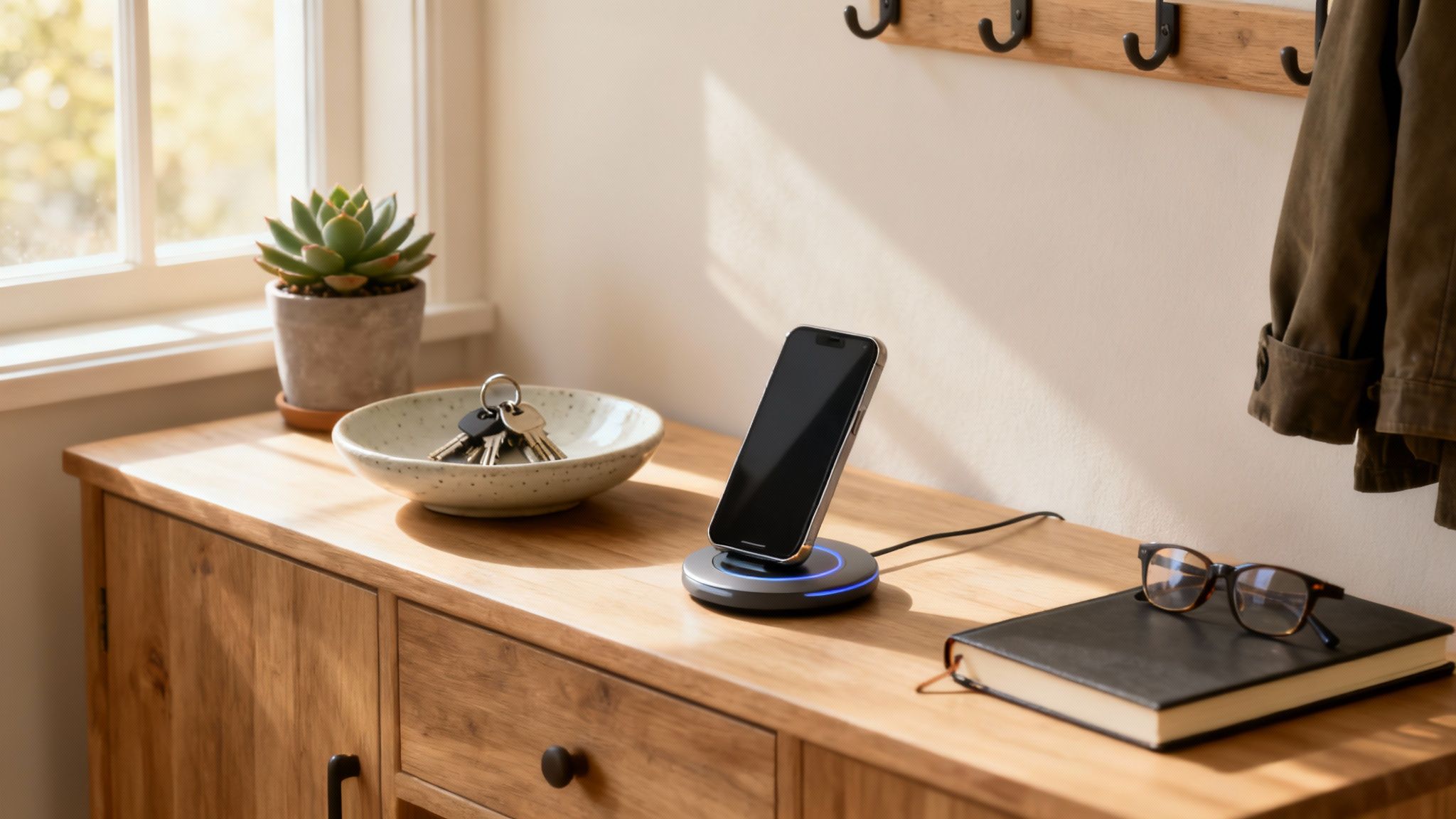Ah, tax season — a time for too much information, non-stimulating processes, and financial distress. If you’re like me, tax season is an uncomfortable reminder of how disorganized your record-keeping can get and how impulsive your spending can be.
I guess you could say it's… taxing. (*crowd boos in the distance*)
It’s the great American tradition of convoluted forms that up to 1/3 of Americans wait until the last minute to file. I couldn’t find a study on ADHDers filing taxes at the last minute, but I'm guessing "more than 1/3" is a reasonable guess. I guess you could say it… dependents. (*crowd boos louder, further in the distance*)

Before you get too upset at tax season (or lose interest in my puns), let’s dive into the taxes ADHDers pay all year long and investigate how we can better manage our way through tax season.
The ADHD tax
You may have heard of the ADHD Tax: a short way of saying that ADHD costs a lot of money. It’s not just the prescription co-pays and medical visits; it can also be the costs associated with credit card late fees, missed flights, and impulsive online purchases. For some, it’s also dropping out of college and struggling to advance in your career.
Tax season forces us to stare into the shame mirror, confronted with some of our struggles, like impulsive spending habits and potentially even periods of underemployment.
Our ADHD can make managing relationships difficult, as well. This is no easier when filing joint taxes and answering questions like, “You spent how much on that?!” When a task lacks an immediately apparent reward or incentive, I’m good at avoiding it — even when it means doing everything else instead. Tax time? More like time to: clean the bathroom, bathe the dog, check the expiration dates on everything in the pantry…
Speaking of time… you know how our perception of time is a binary of now and not now? If there’s anything that is dangerous to put off because it’s “a problem for Later Me,” it’s when the IRS is on the other side of those deadlines.
Tips for a better tax season (plus linked resources!)
Legal Disclaimer: Inflow does not provide legal, tax or accounting advice. You should consult your legal and/or tax advisors before making any financial decisions.
1. Make the time.
Nearly everyone, including friends and even coworkers, will be sympathetic to hear, “I’m setting aside time this weekend to work on my taxes, so expect slow responses to messages!” Just about everyone understands that taxes are time-consuming and strenuous. We don’t often get that kind of validation as ADHDers, so take it!
Here’s how you can make time for specifically for your taxes:
- The early bird avoids Tax Evasion. Or something like that. Try to file early (or at least get started in small chunks) by using a to-do list or task-tracking app to stay organized.
- "Early" for you may be (1) as soon as possible to get it off your mind, or (2) just a few days before the deadline to leave room for moments like, “Oops! My other W-2 got mailed to my parents’ house.”
“Do what you can, with what you've got, where you are.”
Theodore Roosevelt
Sometimes it’s not possible to get started right away if you're waiting on forms from employers and financial institutions. Focus on what you can do in the meantime. Ask and you shall receive. Don't forget that you can always file for an extension for free! here! You can also pay any owed taxes in monthly installments here.
2. Use free resources.
Some services attempt to coerce you into options that sound helpful, but oftentimes, you don’t need extra features when filing simple returns. If you’re not itemizing deductions or reporting stock gains, don’t pay a corporation for services you can otherwise access for free.
- Depending on income, disability, and other factors, you may qualify for free tax preparation services.
- Make sure you’re able to file for free when you should be able to do so. (Check here.)
3. Leave it to the experts (if you can).
If you have the funds to do so, then, by all means, hire a professional. We love to see a big return number at the end of our filing, and that's where the experts come in.
Consider the trade-off of stress, time, worry, and frustration by paying a professional to handle it instead. Experts - such as tax accountants and consultants - can save you money in the long run, avoiding mistakes and overlooked deductions. If this is the route you choose to take, focus on finding a tax professional first, and as soon as possible. It’s a demanding time for their services. Hiring an expert means consideration of another person’s responsiveness and availability.
💡 Pro Tip! After your first year of using professional services, set up an appointment for the following year before you leave. That way, you'll already be in their books and you won't have to scramble for an appointment in 2023.
4. Practice mindfulness and reframing techniques.
Is there a giant stack of invoices on your desk? Do you owe more than you did last year? Having more paperwork to track and watching our money dwindle isn’t the best pastime. It might feel better to focus on the pay raise that bumped you up a tax bracket and view each paid invoice as a person or company who wanted to work with you. Example:
Problem: I owe more than last year?!
Re-frame: I got a pay raise and did some freelance work that I didn’t have the year prior?! Wow, I’m really thankful for the new opportunities I had, even if it makes for a less exciting refund this year.
5. Get motivated by rewarding yourself.
(Ha! How many times have we heard that as people with ADHD?)
Many retailers offer tax season deals on anything from cell phones to TVs. If you’ve been eyeing an electronic upgrade, tell yourself that you can make that purchase only when you finish your taxes. The sooner you file, the sooner you get that return, and the sooner you can claim your reward!
6. Break. It. Down.
Working backwards from Tax Day (here), set aside time for each step in the process. Make a to-do list one day, and confirm that you have the necessary forms on another.
Breaking down each step can make tasks like this easier to manage. And don't forget to get up and move! Movement helps stimulate our brains when faced with monotony. Set a timer to get up and stretch, or take a walk as you make progress with your broken-down steps.
What to do next year:
Was tax season rough this year? Ask yourself these questions while reflecting on what could be improved for next tax season:
- Can I set up an automated bookkeeping system?
- What about automatic savings account transfers to cover future small business taxes?
- Is it possible to save the year's records, receipts, and invoices digitally? (💡 Pro Tip! It’s easier to use Cmd+F or Ctrl+F in documents to find specific information. Alternatively, you can set up a folder in your email for storing receipts and other documents as they come.)
- Does my employer and bank have my updated information so I don't have to look for documents mailed to old addresses?
- Is it possible for me to pursue leniency from the IRS on penalties for previous back taxes? (It never hurts to ask, especially if you’re paying a professional to guide you!)
This is a challenging, anxiety-inducing time for adults with ADHD. It’s especially challenging as someone who purposefully avoided numbers and reports when choosing his profession. Do you see any math in this article? Exactly.
Even though the daunting task of taxes can feel impossible, we can approach tax season with a different mindset. In taking the right steps, we can be proactive and motivate ourselves to get through it. I do think it’s reasonable to recognize the very real reasons to dislike filing taxes. It is not normal human behavior (neurodivergent or otherwise), to file paperwork and keep track of hundreds of numbers and line items.
Filing taxes can be an ac-cruel process, but with the right resources and some motivation, we can do it!

.png)






